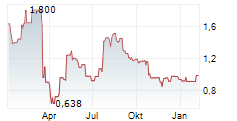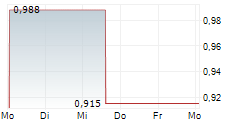
Sedana Medical AB (publ) announces that its first pivotal US trial INSPiRE-ICU 1 has met its primary endpoint: to prove that inhaled sedation with isoflurane is an effective sedation method by establishing non-inferiority compared with intravenous sedation using propofol. The safety results were in line with expectations.
Sedana Medical is aiming for a US combination registration of the medical device Sedaconda ACD and isoflurane for sedation of mechanically ventilated intensive care patients. The primary endpoint measured the percentage of time spent at targeted depth of sedation, comparing patients receiving isoflurane via the company's proprietary Sedaconda ACD medical device with patients receiving intravenous sedation using propofol.
The primary endpoint was met with the non-inferiority margin agreed with the FDA, and non-inferiority versus propofol was established. The safety profile of isoflurane was in line with expectations from previous studies and long-established clinical use in ICUs in Europe.
High-level results for INSPiRE-ICU 2 are expected in early 2025.
"We are very pleased that our first US trial, in a country previously not familiar with inhaled sedation, demonstrated non-inferiority compared to a standard of care treatment that has been used for decades. We would like to thank all the participating investigators and study sites for their support and commitment." said Peter Sackey, Chief Medical Officer of Sedana Medical.
"With more than 2 million mechanically ventilated patients treated in US intensive care units each year, we see a tremendous opportunity to make a meaningful difference in these patients' lives. We look forward to receiving the full results from our US clinical program and progressing towards our NDA submission." said Johannes Doll, CEO and President of Sedana Medical.
The high-level results of INSPiRE-ICU 1 mark the first element of a comprehensive data set, including the full analyses of all end points for both INSPiRE-ICU 1 and INSPiRE-ICU 2, as well as the long-term follow-up of both studies. The FDA will make their assessment based on the totality of the future submission, including pooled analyses of both US trials and the European Sedaconda trial (SED001).
For additional information, please contact:
Johannes Doll, CEO, +46 (0)76 303 66 66
Johan Spetz, CFO, +46 (0)730 36 37 89
ir@sedanamedical.com
This information is information that Sedana Medical AB (publ) is obliged to make public pursuant to the EU Market Abuse Regulation. The information was submitted for publication, through the agency of the contact persons set out above, at 2024-12-19 19:59 CET.
About Sedana Medical
Sedana Medical AB (publ) is a pioneer medtech and pharmaceutical company focused on inhaled sedation to improve the patient's life during and beyond sedation. Through the combined strengths of the medical device Sedaconda ACD and the pharmaceutical Sedaconda (isoflurane), Sedana Medical provides inhaled sedation for mechanically ventilated patients in intensive care.
Sedana Medical has direct sales in Benelux, France, Germany, Great Britain, the Nordics, and Spain. In other parts of Europe as well as in Asia, Australia, Canada, and South- and Central America, the company works with external distributors.
Sedana Medical was founded in 2005, is listed on Nasdaq Stockholm (SEDANA) and headquartered in Stockholm, Sweden.
About INSPiRE-ICU
INSPiRE-ICU 1 and 2 are two identical randomized phase III trials, aiming to confirm the efficacy and safety for sedation with isoflurane delivered via Sedana Medical's unique medical device Sedaconda ACD. The primary endpoint is the proportion of time spent at adequate depth of sedation, compared with intravenous sedation using propofol. In addition, several important secondary endpoints are being studied, including opioid requirements during treatment, time to wake-up, cognitive recovery and proportion of time with spontaneous breathing. The first patient was included in April 2022 and the last patient was enrolled in May 2024. 31 highly reputed clinics in the United States are involved in the two trials. The design of the US studies is similar to the Sedaconda study (SED001) successfully performed in Europe in 2017-2019, which resulted in market approval in Europe 2021.



